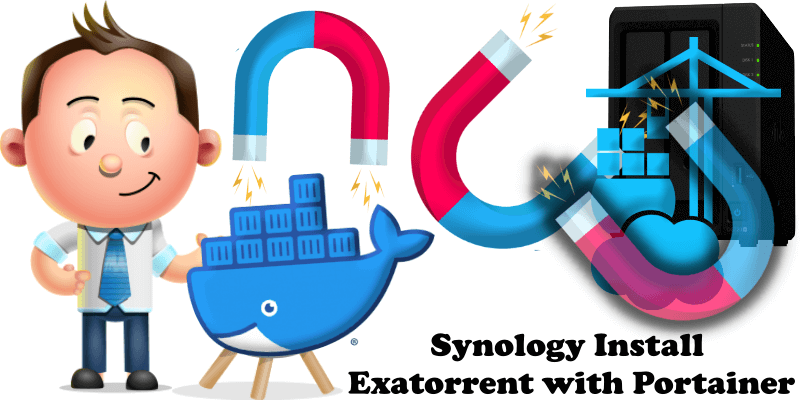
My previous guide for Exatorrent involved the use of Task Scheduler. Today I’m offering a recommended and excellent alternative for installing the latest Exatorrent version via Portainer. Exatorrent is a BitTorrent Client written in Go. It can be run locally on your Synology NAS. Exatorrent is simple, yet feature-rich. It is lightweight and light on resources. It comes with Beautiful Responsive Web Client written in Svelte and Typescript. Exatorrent can operate in Optional Multi-User Mode administrated by admin user/s, but it can successfully be used by Single-User as well. In this step by step guide I will show you how to Install Exatorrent on your Synology NAS using Docker & Portainer.
STEP 1
Please Support My work by Making a Donation.
STEP 2
Install Portainer using my step by step guide. If you already have Portainer installed on your Synology NAS, skip this STEP. Attention: Make sure you have installed the latest Portainer version.
STEP 3
Go to File Station and open the docker folder. Inside the docker folder, create one new folder and name it exatorrent. Follow the instructions in the image below.
Note: Be careful to enter only lowercase, not uppercase letters.
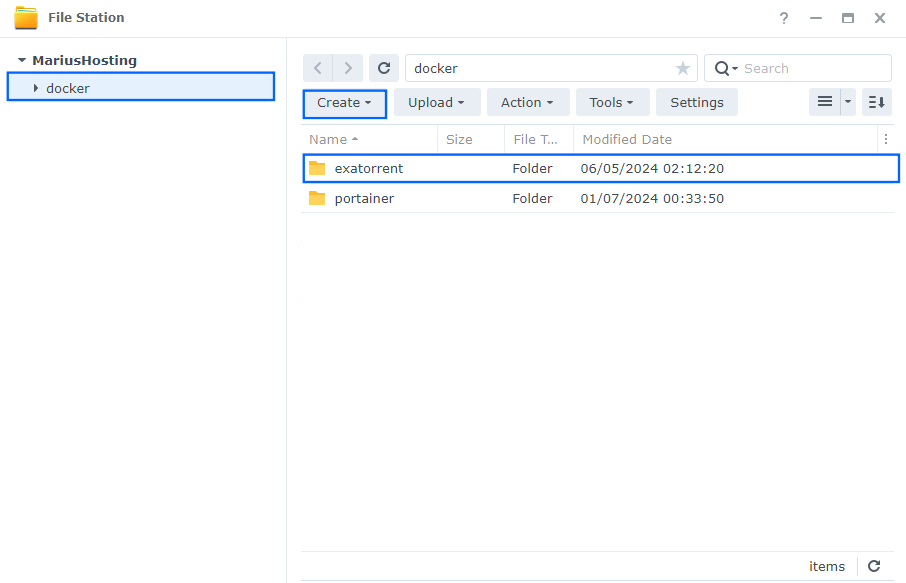
STEP 4
Go to Control Panel / Task Scheduler / Create / Scheduled Task / User-defined script. Follow the instructions in the image below.
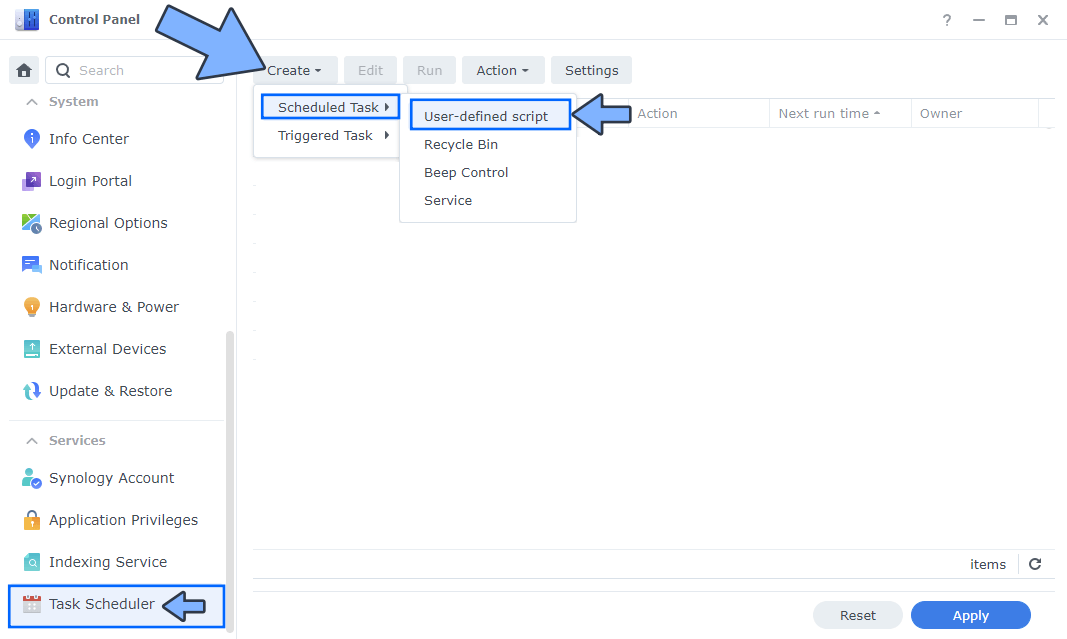
STEP 5
Once you click on User-defined script, a new window will open. Follow the instructions below:
- General: In the Task field type in Exatorrent Permission. Uncheck “Enabled” option. Select root User.
- Schedule: Select Run on the following date then select “Do not repeat“.
- Task Settings: Check “Send run details by email“, add your email then copy paste the code below in the Run command area. After that click OK.
chown -R 1000:1000 /volume1/docker/exatorrent
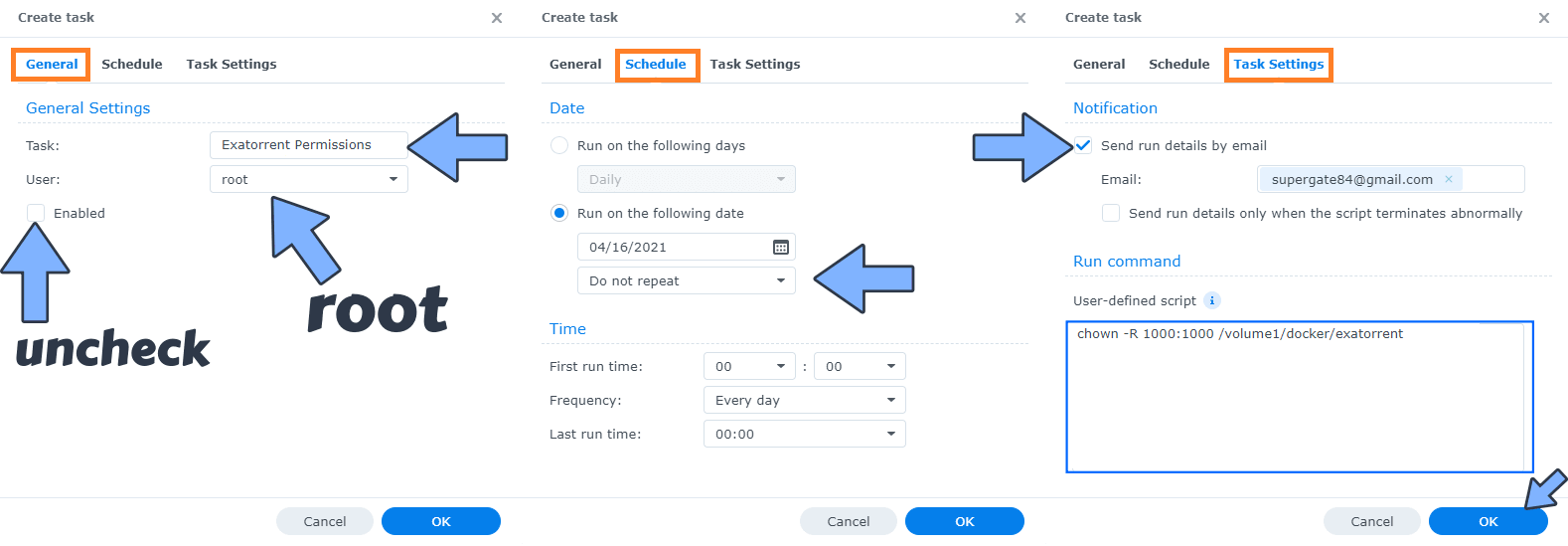
STEP 6
After you click OK on STEP 5 a new warning pop up window will open. Click OK.
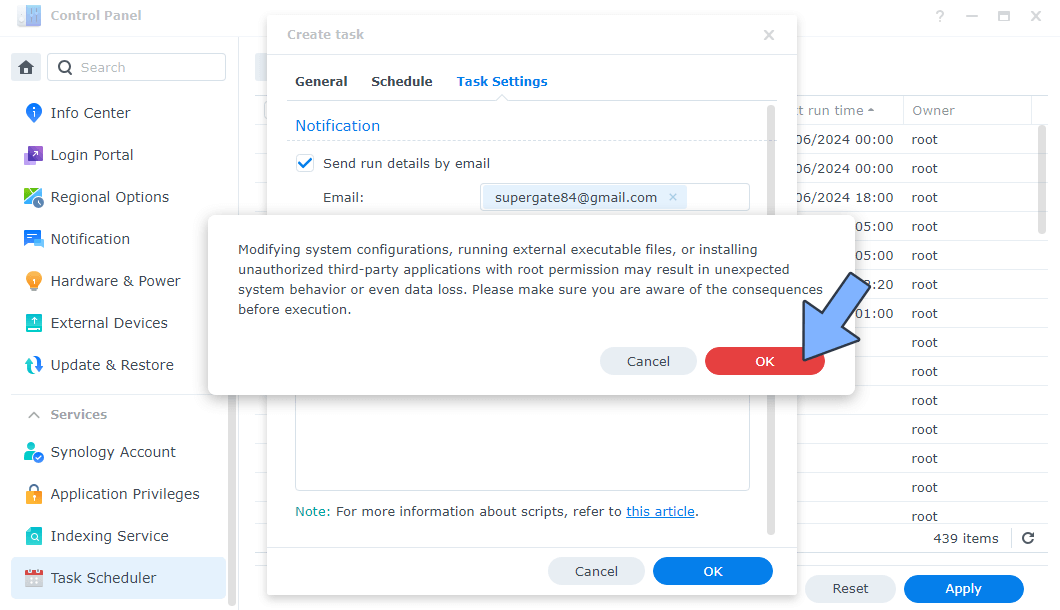
After you click OK, type in your DSM Password then click Submit. Follow the instructions in the image below.
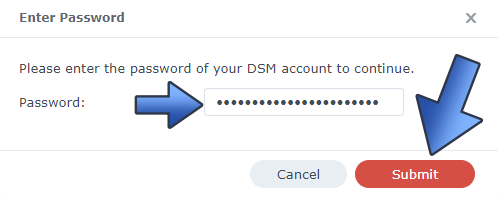
STEP 7
After you click Submit on STEP 6, select your “Exatorrent Permission” Task then click the “Run” tab. You will be asked to run Exatorrent Permission – click OK. Follow the instructions in the image below.
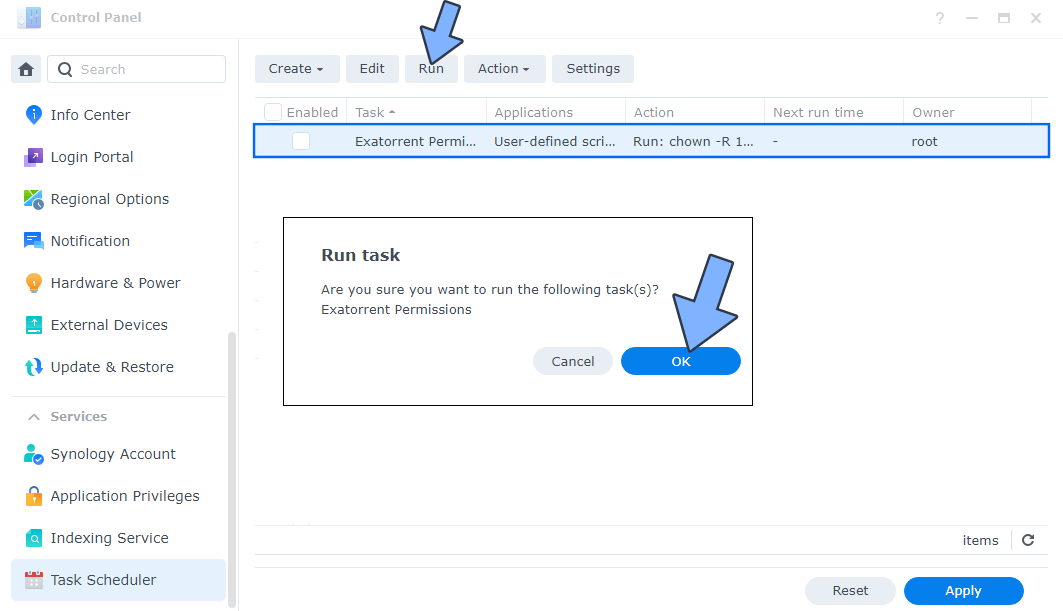
STEP 8
Log into Portainer using your username and password. On the left sidebar in Portainer, click on Home then Live connect. Follow the instructions in the image below.

On the left sidebar in Portainer, click on Stacks then + Add stack. Follow the instructions in the image below.

STEP 9
In the Name field type in exatorrent. Follow the instructions in the image below.
version: "3.9"
services:
exatorrent:
container_name: Exatorrent
image: ghcr.io/varbhat/exatorrent:latest
security_opt:
- no-new-privileges:false
- seccomp:unconfined
volumes:
- /volume1/docker/exatorrent:/exa/exadir:rw
ports:
- 5414:5000
- 42069:42069
restart: on-failure:5
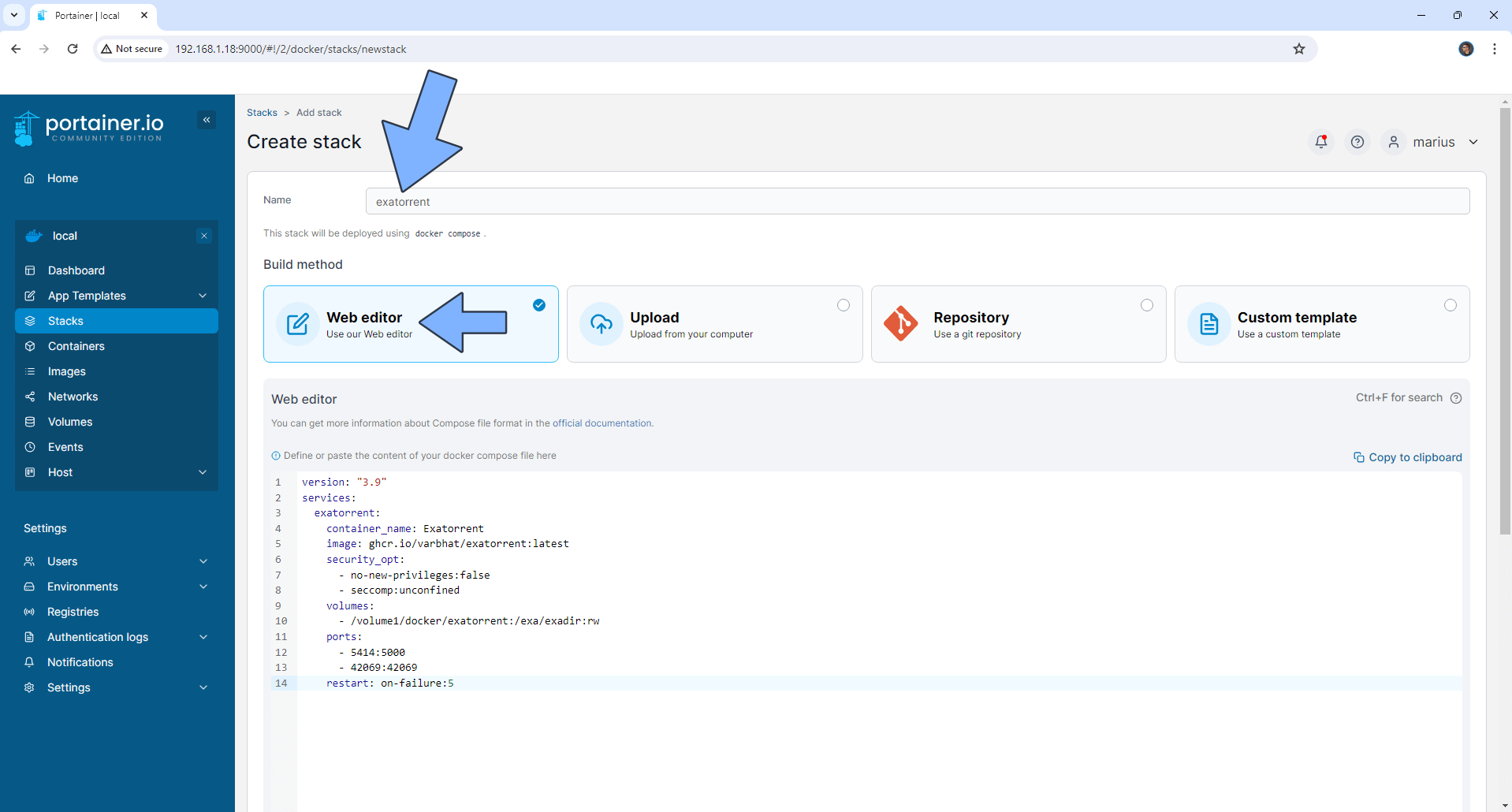
STEP 10
Scroll down on the page until you see a button named Deploy the stack. Click on it. Follow the instructions in the image below. The installation process can take up to a few minutes. It will depend on your Internet speed connection.
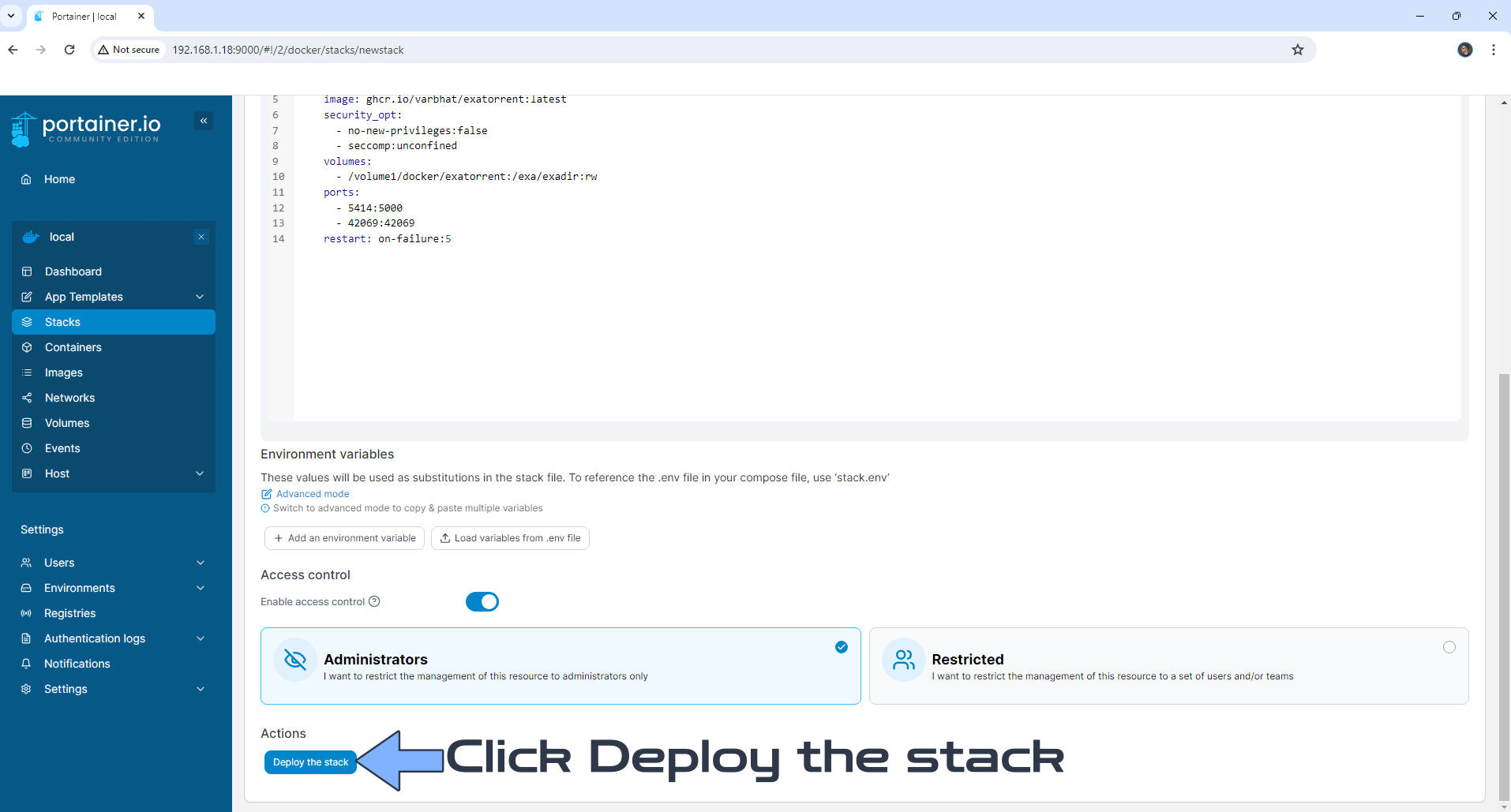
STEP 11
If everything goes right, you will see the following message at the top right of your screen: “Success Stack successfully deployed“.

STEP 12
🟢Please Support My work by Making a Donation. Almost 99,9% of the people that install something using my guides forget to support my work, or just ignore STEP 1. I’ve been very honest about this aspect of my work since the beginning: I don’t run any ADS, I don’t require subscriptions, paid or otherwise, I don’t collect IPs, emails, and I don’t have any referral links from Amazon or other merchants. I also don’t have any POP-UPs or COOKIES. I have repeatedly been told over the years how much I have contributed to the community. It’s something I love doing and have been honest about my passion since the beginning. But I also Need The Community to Support me Back to be able to continue doing this work.
STEP 13
The installation process can take up to a few seconds/minutes. It will depend on your Internet speed connection. Now open your browser and type in http://Synology-ip-address:5414 Type in the default Username and Password, then click Sign in.
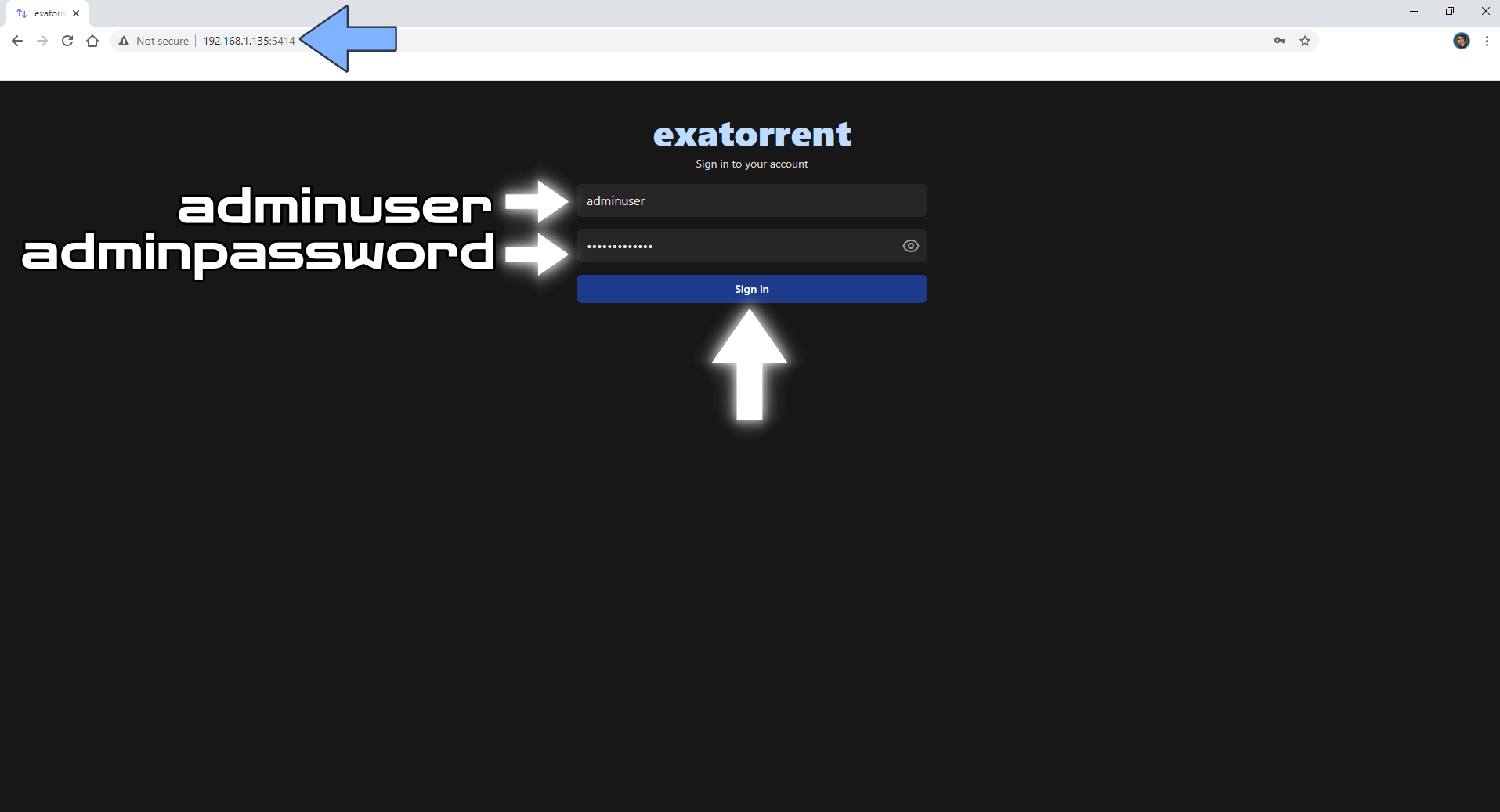
💡Note: You can change later the default Username and Password.
STEP 14
Add Magnet or Infohash and start to download. Follow the instructions in the image below.
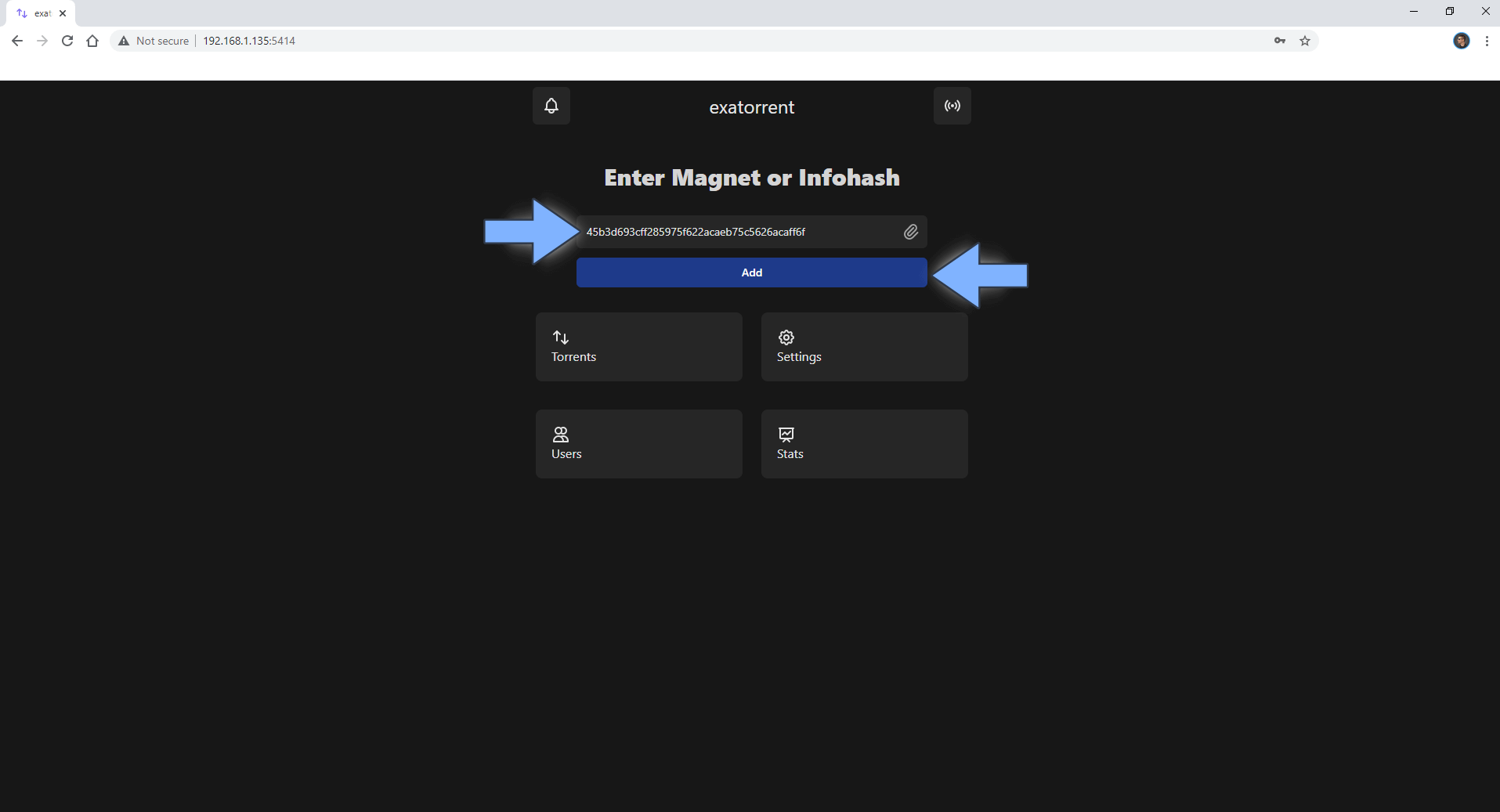
STEP 15
Your Exatorrent download at a glance!
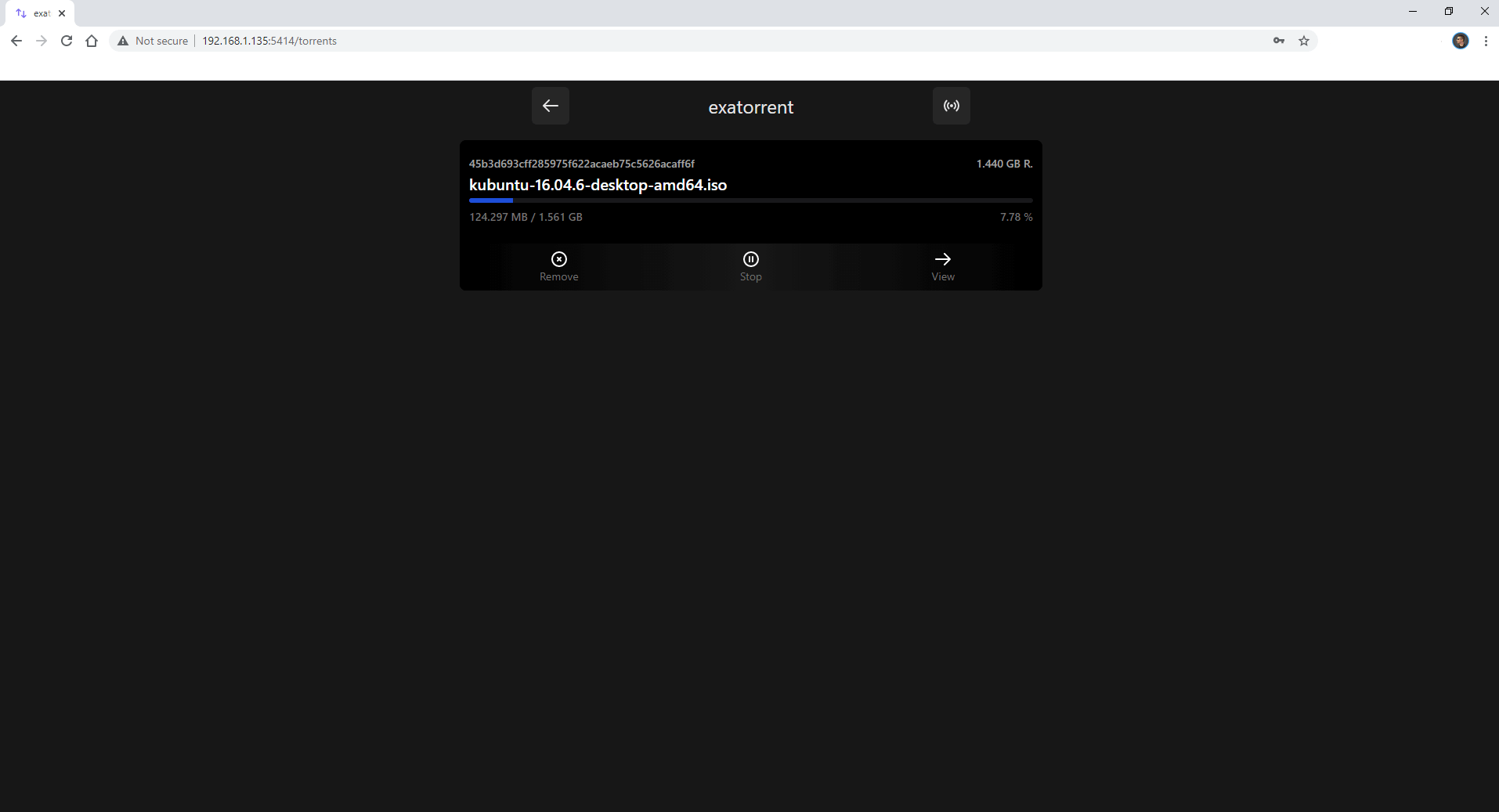
Enjoy Exatorrent!
If you encounter issues by using this container, make sure to check out the Common Docker issues article.
Note: If you want to run the Exatorrent container over HTTPS, check How to Run Docker Containers Over HTTPS. In order to make Exatorrent work via HTTPS, it’s mandatory to activate WebSocket.
Note: Can I run Docker on my Synology NAS? See the supported models.
Note: How to Back Up Docker Containers on your Synology NAS.
Note: Find out how to update the Exatorrent container with the latest image.
Note: How to Free Disk Space on Your NAS if You Run Docker.
Note: How to Schedule Start & Stop For Docker Containers.
Note: How to Activate Email Notifications.
Note: How to Add Access Control Profile on Your NAS.
Note: How to Change Docker Containers Restart Policy.
Note: How to Use Docker Containers With VPN.
Note: Convert Docker Run Into Docker Compose.
Note: How to Clean Docker.
Note: How to Clean Docker Automatically.
Note: Best Practices When Using Docker and DDNS.
Note: Some Docker Containers Need WebSocket.
Note: Find out the Best NAS Models For Docker.
Note: Activate Gmail SMTP For Docker Container
This post was updated on Wednesday / August 27th, 2025 at 7:23 PM
